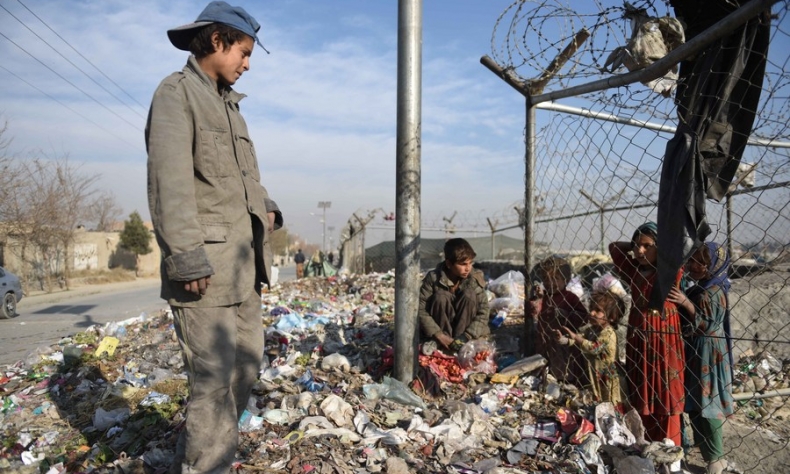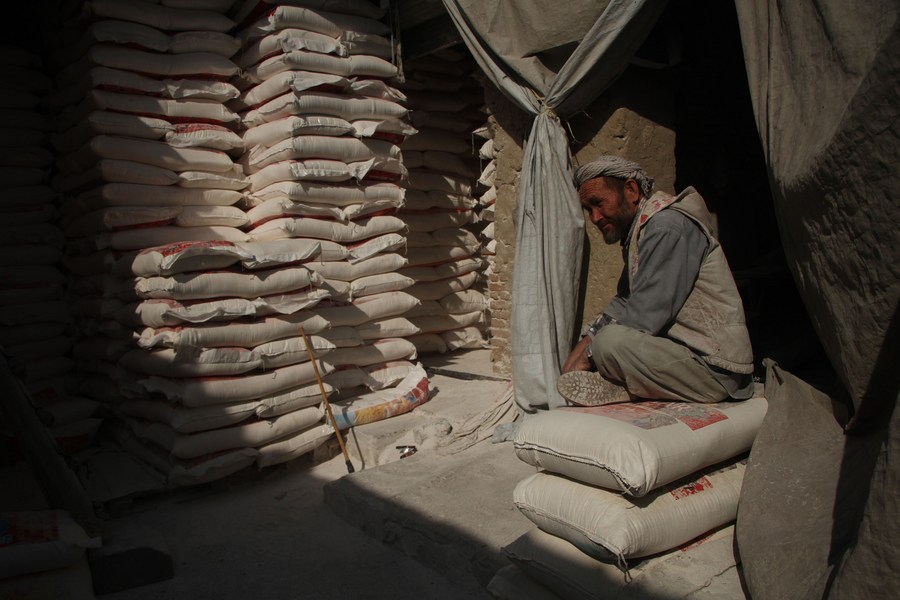US ‘Stands with the People of Afghanistan’… by Stealing Their Money?

U.S.’s Afghanistan policies are in a vicious cycle, causing more harm than good. Now, it’s time for a clean break, recognizing that these old policies have failed miserably.
Wrecked by constant war, turmoil, chaos, and a 20-year-long American occupation that ended last summer, Afghanistan has a GDP per capita of just $508. Despite this, following the takeover and collapse of the government to Taliban rule, the U.S. quickly acted to seize the country’s financial reserves from its central bank, amounting to $7.1 billion.
This complete shutdown of its national budget has triggered a humanitarian crisis in the Central Asian country and brought it to the brink of famine. However, the U.S. has refused to release the money, fearing the Taliban will use it for nefarious purposes, and instead, President Biden issued an executive order last week, announcing that the U.S. would split the money between humanitarian assistance to the struggling country; the rest is going to the “9/11 victims fund.” In making this announcement, Secretary of State Anthony Blinken claimed that the U.S. “stands with the people of Afghanistan.”
The decision has been widely criticized; some have even described it as outright theft. The U.S. is in effect punishing an entire country and taking its wealth on the merits of a terror attack that was committed 20 years ago. However, 9/11 was an absolutely horrific terrorist attack led by Osama Bin Laden under Al-Qaeda, not one orchestrated by the ordinary people of Afghanistan, who have only suffered from endless war promulgated by Washington, irrespective of the role the Taliban may have played in sympathizing with those who committed that event. In this regard, it is unfair and unjust to compensate the victims of the 9/11 attacks with Afghanistan’s assets.
In learning from the mistakes of the past four decades, which have involved promulgating war of one kind or another against the country, the United States must learn to live with the Taliban and look out for the best interests of that country’s population as opposed to resorting to brutal sanctions. These actions have not only cost millions of lives but placed the country in abject poverty, which has contributed to growing radicalization, terrorism, drug smuggling, and other illicit acts that threaten international security and wellbeing around the globe. By stealing the country’s national wealth, the U.S. has effectively crushed its ability to import and export goods and has rendered its healthcare system, as well as other public service bodies and bureaucratic institutions, dysfunctional.

U.S.’s Afghanistan policies are in a vicious cycle, causing more harm than good. Now, it’s time for a clean break, recognizing that these old policies have failed miserably. Providing the Taliban meet certain guarantees, it’s time to give the development of Afghanistan a chance for the sake of its people, as opposed to trying to grind its economy into the ground and sowing the seeds for the next internal war.
Growth and prosperity are natural remedies for political and social stability. Humanitarian aid to the country is not enough. Afghanistan needs infrastructure, jobs, as well as connections to the outside world to integrate with the surrounding region. The country should under no circumstances be left in isolation and suffering.
Ultimately, rethinking Afghanistan should be a process that involves thinking differently upon the lessons that have been learned, other than applying the same hard-line policies which believe the country can be reshaped to meet American preferences by force. Instead, diplomacy and engagement should be given a chance. In taking Afghanistan’s national wealth, the U.S. has betrayed the Afghan people and will ultimately deprive the country of its opportunity to develop on its own terms after suffering years on years of war.
A series of diplomatic talks should commence amongst all relevant parties on how Afghanistan can be helped, and structures should be established towards “normalizing” its existence in the world in a way that helps its population rebuild their livelihoods and at least be able to access basic necessities and services. The Afghanistan War may be over, but the suffering is far from finished.
 Facebook
Facebook
 Twitter
Twitter
 Linkedin
Linkedin
 Google +
Google +







